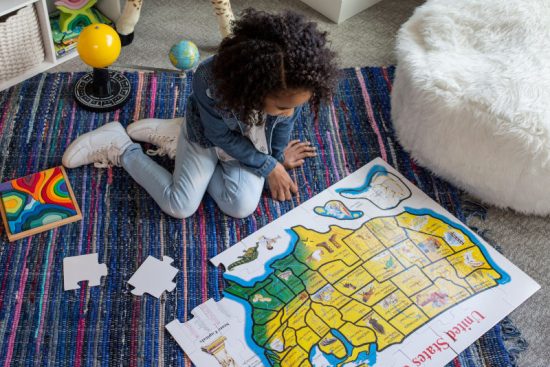
Meta Title: How to Teach Children with Special Needs.
Meta Description: Every child deserves to be given a chance at learning regardless of their health or mental capacity.
Special needs education is a field that focuses on providing tailored learning experiences for children with a wide range of physical, cognitive, social, emotional, and behavioral challenges. These children may require specialized instruction, assistive technologies, and personalized support to reach their full potential.
Understanding the unique needs and strengths of each child is crucial in designing effective learning strategies that can help them thrive in educational settings. You can learn more about learning tips for kids with special needs that can be transferred to other areas of their lives. If you’re interested in games and sports, read more.
Common Challenges Faced by Children with Special Needs in Traditional Learning Environments
Traditional learning environments may not always be equipped to address the specific needs of children with special needs. These children may face various challenges, such as difficulty processing information, challenges with social interaction, sensory processing issues, or struggles with fine motor skills. Navigating the one-size-fits-all approach of mainstream classrooms can be overwhelming and can hinder their academic and personal growth.
The Importance of Individualized Learning Plans
Recognizing the diverse needs of children with special needs is the first step in providing effective learning strategies. Individualized learning plans (ILPs) are essential in addressing the unique challenges and strengths of each child. These plans are developed in collaboration with parents, educators, and specialists to identify specific goals, accommodations, and instructional methods that can help the child reach their full potential.
Effective Strategies for Teaching Children with Special Needs
Multisensory Instruction
Tailoring the content, instructional methods, and assessments to each child’s individual needs can ensure that they receive the support they require. A functional capacity assessment can help educators identify the best teaching strategies by assessing a child’s cognitive, physical, and emotional capabilities.
Structured Routines and Schedules
Providing clear and predictable routines can help reduce anxiety and improve focus for children with special needs.
Positive Reinforcement and Praise
Emphasizing a child’s strengths and celebrating their progress can boost their confidence and motivation to learn.
Differentiated Instruction
Tailoring the content, instructional methods, and assessments to each child’s individual needs can ensure that they receive the support they require.
Collaborative Learning
Encouraging peer-to-peer interactions and group activities can foster social skills and a sense of community among children with special needs.
Implementing Assistive Technologies in Special Needs Education
Assistive technologies can be invaluable in supporting the learning and development of children with special needs.

These technologies can range from simple tools like pencil grips or communication boards to more advanced devices such as speech-to-text software or specialized computer programs. Incorporating assistive technologies into the learning environment can help children with special needs overcome barriers and actively participate in the educational process.
Creating Inclusive Learning Environments
Fostering inclusive learning environments is crucial for the success of children with special needs. This involves promoting acceptance, understanding, and respect for diversity within the classroom and school community. It also requires providing appropriate accommodations, modifications, and support services to ensure that all children can actively engage in the learning process and feel valued as members of the community.
Collaborating with Parents and Caregivers in Special Needs Education
Parents and caregivers play a vital role in the education and development of children with special needs. Effective collaboration between educators and families is essential in developing and implementing successful learning strategies. Regular communication, joint decision-making, and a shared understanding of the child’s needs can help ensure a cohesive approach to supporting the child’s growth and progress.
Promoting Social and Emotional Development in Children with Special Needs
Addressing the social and emotional needs of children with special needs is crucial in addition to academic support. This may involve teaching social skills, fostering peer relationships, and providing opportunities for emotional expression and self-regulation.

By nurturing the whole child, educators can help these children develop the skills and confidence they need to thrive both in and out of the classroom.
Support Services for Children with Special Needs
Children with special needs may require access to a range of support services, such as speech therapy, occupational therapy, counseling, or specialized tutoring. Working with a healthcare professional, such as a speech pathologist NDIS provider, can be especially beneficial for children who struggle with communication and language development. Identifying and coordinating these services can be a complex process, but it is essential to ensure that the child receives the comprehensive support they need to reach their full potential.
Conclusion
Unlocking the potential of children with special needs requires a holistic and personalized approach to education. By understanding the unique challenges they face, implementing effective learning strategies, and creating inclusive environments, educators and caregivers can empower these children to overcome obstacles and reach new heights. Through collaboration, innovation, and a steadfast commitment to their success, we can unlock the boundless potential of children with special needs and help them thrive in their educational journeys.
To learn more about effective learning strategies for children with special needs, consider enrolling in a specialized training program. Expert-led courses will equip you with the knowledge and tools to create personalized learning plans and foster inclusive environments that empower every child to reach their full potential. Take the first step towards transforming the educational experiences of children with special needs – contact them today to get started.




